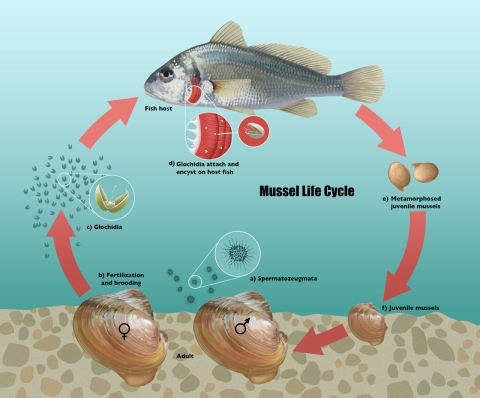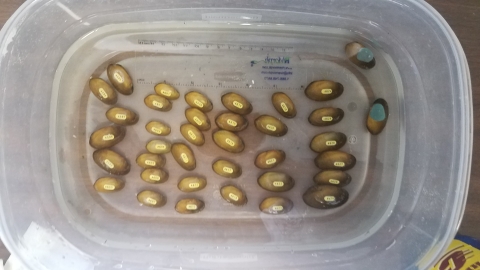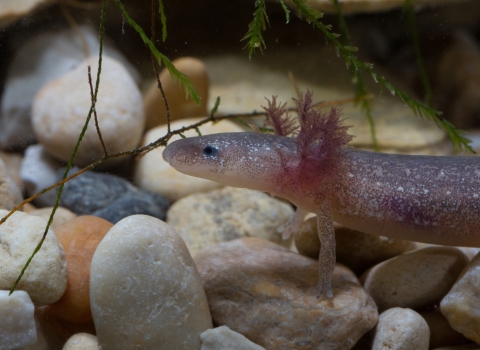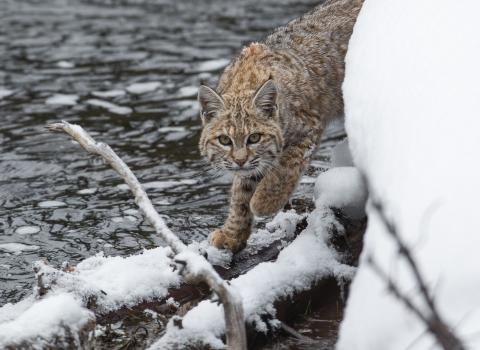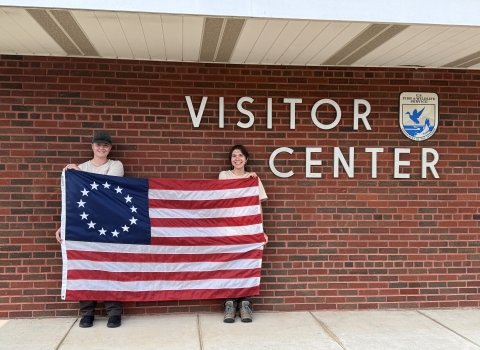Freshwater mussels are some of the most endangered organisms on Earth, much of this due to pollution, excess sedimentation, and habitat fragmentation (dams and failing infrastructure). Efforts to restore freshwater mussels have been on the rise and Natchitoches National Fish Hatchery (NFH) is fortunate to be involved in this recovery effort. Natchitoches NFH has been working with the Louisiana Pearlshell (Margaritifera hembeli) mussel in some capacity for nearly two decades. This federally threatened species is unique, as they can only be found in cold, headwater streams within Grant and Rapides Parish’s. Louisiana Pearlshell watersheds exist in rural areas which have seen an increase in logging and farming, activities that can increase sedimentation, disrupting mussels through all stages of life.
Freshwater mussels have a unique parasitic live stage where the larvae, called glochidia, need to attach to a host (various fish, hellbender, and mudpuppies). Glochidia are typically found on the host’s gills but can be found attached to other structures such as fins. Each species of mussel will have a its own host(s), some are generalized having several hosts, while others have a specific one or two. Glochidia will stay attached to the host until fully transformed into a juvenile mussel and will drop off. These are all early life history traits that need to be learned about each mussel species for a successful program.
After looking at what fish coexist with Louisiana Pearlshell, a series of host fish trials were completed, and the Grass Pickerel (Esox americanus) was identified as a viable host and is now used for the program at Natchitoches NFH. In 2018, the first official year class of Louisiana Pearlshell was produced for stocking and reintroduction. After 2 years of grow-out, individuals reached a length of 20mm or more and were tagged with either a Passive Integrated Transmitter (PIT) tag or HallPrint tag. PIT tags are the same technology used when pets are microchipped and allow us to use a waterproof scanner to effectively detect and recapture mussels in the wild. Both PIT and HallPrint tags offer unique identification so in the event of recapture we can identify what year it was created, date stocked and growth since last capture. All are vital to determining a successful program.
Nearly 1,000 Louisiana Pearlshell were stocked into historically occupied areas in July of 2020.Altogether, 300 PIT tagged mussels were stocked between 3 water bodies and 12 sites. Since stocking, hatchery staff has teamed up with the US Forest Service and completed 2 monitoring events with the goal of recapturing as many live PIT tagged individuals as possible. A total of 63 individuals were found in 2021 and 50 individuals were found in 2022. Of the 50 found in 2022, 19 were recaptured from 2021. This means that 31 (62%) were never found in 2021 suggesting that detection rates can be underrepresented, likely based on how far below the surface an individual burrows.
Horizonal movements, or burrowing, are well documented throughout freshwater mussel species. Burrowing is seen in response to changes in flow (discharge), reproductive activities, water temperature fluctuations and perceived threats of predation. Individuals can also be covered in fresh deposits of sediment after large storms and rain events as the dynamic system fluctuates and finds new stability.
There was a lot of uncertainty whether any mussels would be found during the first monitoring event and even less certainty that they would be alive. Within 2 months of stocking, the area was decimated by Hurricane Laura (Category 4, nearly 5), followed by Hurricane Delta (a weaker Category 4) and several rounds of severe weather producing multiple tornadoes. Sites were hard to find and access but we started detecting tags and mussels that were alive!
Finding new individuals in 2022 and seeing an average of 15mm of growth from the recaptured individuals shows the resiliency of this species.It offers great promise that the Louisiana Pearlshell Controlled Propagation and Reintroduction Program at Natchitoches NFH will be very successful long-term!!


